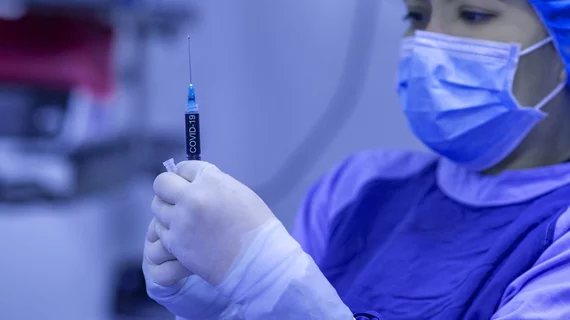FDA announces a new myocarditis warning for COVID-19 vaccines as specialists urge Americans to get vaccinated
The CDC’s Advisory Committee on Immunization Practices (ACIP) met June 23 to discuss, among other things, the trend of young adults developing myocarditis-like symptoms after receiving a COVID-19 vaccine.
As researchers recently explained in Circulation, the symptoms these patients—typically young men—are experiencing tend to resolve within a few days after treatment. Thus far, it is estimated that there have been fewer than 13 cases of this side effect per 1,0000 vaccinated individuals. Full presentations from the ACIP meeting can be reviewed here.
After reviewing this latest data and considering the ACIP’s insight, the FDA announced it would add warnings to Pfizer and Moderna COVID-19 vaccine fact sheets.
Also, in an effort not to scare off people from being vaccinated, a new statement co-signed by the CDC, American Heart Association and several other healthcare organization emphasizes that all eligible Americans should still get vaccinated as quickly as possible.
“The facts are clear: This is an extremely rare side effect, and only an exceedingly small number of people will experience it after vaccination,” the groups wrote. “Importantly, for the young people who do, most cases are mild, and individuals recover often on their own or with minimal treatment. In addition, we know that myocarditis and pericarditis are much more common if you get COVID-19, and the risks to the heart from COVID-19 infection can be more severe.”
That full statement is available here.

